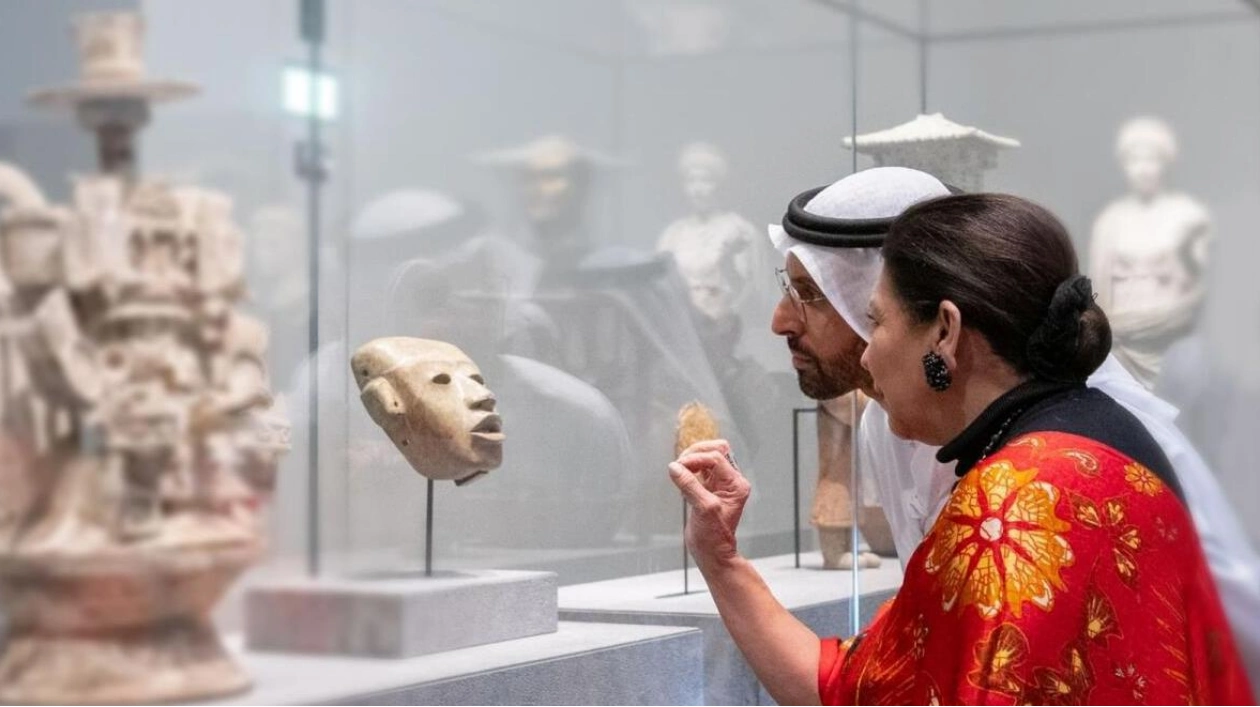Louvre Abu Dhabi revealed the arrival of five distinctive artifacts on loan from Mexico’s National Institute of Anthropology and History (INAH) on Friday. This marks a significant cultural exchange, as announced by Mohamed Khalifa Al Mubarak, Chairman of the Department of Culture and Tourism – Abu Dhabi and Chairman of Louvre Abu Dhabi, and Maria Teresa Mercado, Deputy Minister of Foreign Affairs of Mexico. This is the first time these valuable pieces have been brought to the region, including a ritual mask from Calakmul, a recent archaeological discovery from the Mayan civilization. The artifacts will be on display at the museum until at least April 2025.
Since its inception in Abu Dhabi in 2017 as the first world-class museum in the Arab world, the Louvre has stood as a symbol of global human creativity, narrating stories of cultural connections through time. This mission is bolstered by the museum’s influential international partnerships and collaborative relationships with numerous international institutions, facilitated by reciprocal loan agreements that enable the exhibition of artifacts and artworks from various historical periods from around the world.
The five Mexican artifacts include a colossal head weighing 5,840 kg, carved from a massive block of basalt, representing the Olmec civilization (1200-500 BC) from Veracruz State, Mexico. Another item is a “theatrical” type incense burner from the Teotihuacan civilization (100 BC-800 AD), which was manufactured between 1 and 100 AD using charcoal and copal, abundant in Central America. The third piece is a stone mask in the shape of a human face (100 BC - 800 AD) from the Teotihuacan Archaeological Site, embodying traditional human features. The fourth is a ritual mask from the Mayan civilization (600 BC - 1521 AD) from the Calakmul Archaeological Site, a recent discovery being displayed to the public for the first time. The fifth is a carved column from Chichen Itza, classified as an Atlantean statue, featuring anthropomorphic sculptures with raised arms, likely carrying an altar or threshold of a place of worship.






